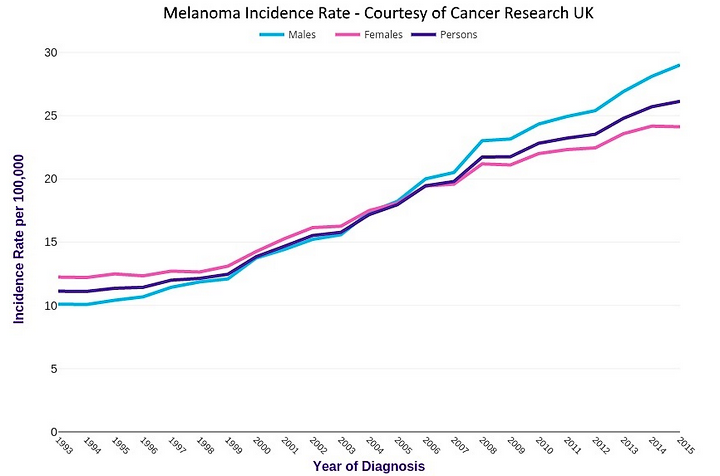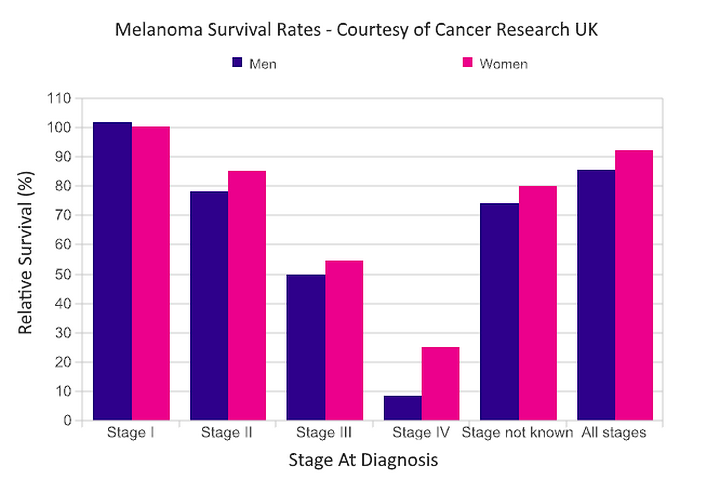Interesting research but this is about cancers in general, isn’t skin cancer different?
The answer to the question is essentially no, tumours on your skin are cancerous tissue and certain types can spread within your body.
We don’t wish to bring alarm. Most skin cancers are eminently treatable and well understood, as we see in the video, new research could help further, research into diagnosis already has. There are still a few key aspects we should all accept:
- Skin cancer is increasing significantly. A holiday boom in recent decades increased sun exposure, tanning beds don’t help and we live longer.
- This increase is seen across the board. In the UK, over 100,000 new cases of non melanoma skin cancer are diagnosed each year.
- Most relevant medical bodies now recommend annual skin checks for all patients, particularly for people over 40 years of age.
- As in the graphic below, a driver for these checks is the increase in the most serious form of skin cancer, malignant melanoma.

Unlike other conditions, such as bowel cancer, there is no national screening program for skin cancer, even though catching skin cancers early allows for wider ranging and more effective treatment.
Early Diagnosis Counts
A significant percentage of skin cancers are basal cell carcinomas (BCCs) with squamous cell carcinomas (SCCs) next in line. They occasionally spread to other areas and most are able to spread across the skin, increasing cosmetic, social, or lifestyle concerns.
In the vast majority of cases, BCCs, or SCCs can be treated quickly and effectively, not least when diagnosed early. There is no need for them to become a disfiguring condition.
Melanomas occur in smaller numbers but are far more likely to spread to other areas, such as lymph nodes and organs. As shown below, of all skin cancers, they have the ability to prove fatal if left to act freely.

The difference in survival rates between stage 1 and stage 4 is striking, across both genders, nearly 100% as opposed to 16%. Early treatment is also less invasive, often just surgery under local anaesthetic.
Complete removal is essential and again an early stage benefit. Your immune system is not able to deal with issues left in place, a proportion of cancerous cells can still travel to the lymph nodes, or blood vessels.
Developing Awareness
The National Cancer Research Institute focused on screening and early intervention in their last annual report. Other bodies and specialist clinics such as ours are helping to change perception.
Skin cancer can be a moderate, unpleasant condition but can also be a serious threat. Screening makes sense for everyone, with or without risk factors and however they are discovered, symptoms need professional diagnosis.
The battle is gradually being won, as you can see at the first link below. Diagnosis and treatment have advanced, people are more aware, the facilities to protect themselves are available to them.
You may find the options below useful:
- Save time with an intuitive search on: Skin Cancer Diagnosis & Treatment.
- Up to date news, research and insights: Our Dedicated Skin Cancer Blog.
For any advice, or to arrange a dermatology appointment, call 020 8441 1043, or send an email via the Make An Appointment button below.
